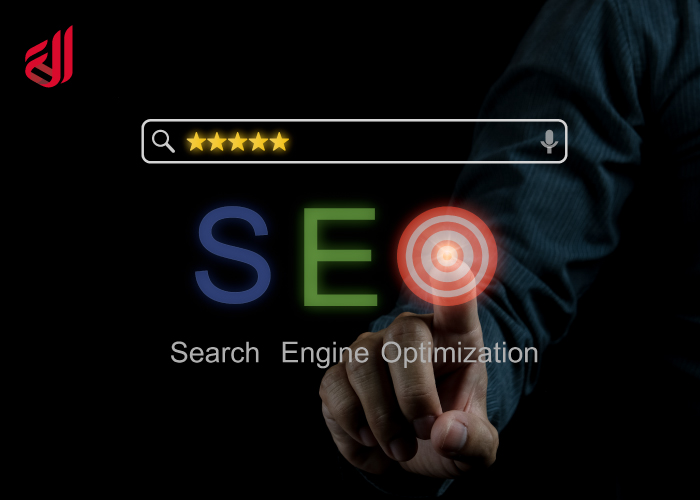
Building a website may serve various purposes. Perhaps you have created a fantastic item that you want to sell on the Internet. Perhaps you’ve completed your masterpiece, a deeply introspective article that, if published online, will undoubtedly get praise and a Pulitzer Prize. Perhaps you just like to enlighten the globe with your passions. However, if no one ever sees your webpage, none of it will matter.
Get in on the direct and indirect keywords that matter:
It’s impossible to build a solid SEO (Search Engine Optimization) plan without first doing extensive keyword research. More visitors will be drawn to your webpage when you take the time to learn how to employ keywords properly in your content development. The first thing to do is to determine the major and secondary terms for your website.
Your material should revolve around your major keyword. Select a single focus keyword that will serve as the page’s main focus. Your page’s purpose, brand identification, goods, plus services should all be reflected in the tone and style of the copy.
Your secondary keywords complement your primary ones well. Expect to have numerous of them. They are often more specific than the core keyword and stand in for the underlying themes you develop in the body of the text. Try to work them in where they make sense, but cut them when necessary.
Produce unique, high-quality work:
Quality content that is unique, thorough, and evergreen is essential if you wish consumers to discover and come back to your website.
Creating content from scratch is a great way to establish your authority and establish rapport with your target audience. In addition, SEO is built to detect original material, notably Google’s. Those that use sound SEO strategies and provide credibly, unique material will certainly see an uptick in traffic.
You should strive for completeness in your material. It’s a good sign that your material covers every base a reader would desire covered on that subject. Having detailed pages will demonstrate to SEO how you are an expert in your field.
Determine which themes will continue to interest your audience years from now, without requiring you to make any major changes, and use those as the basis for your evergreen content. Stay away from articles that are time-sensitive, occasional, or news-breaking. It’s quite doubtful that these pages will stay up to date for very long.
Optimize for Search Engines and focus on featured rough cuts:
The success of your written content depends on your ability to successfully address the concerns of your target audience. One strategy for doing so is to aim for highlighted bits.
Google’s featured snippets are the first results users see while searching. They are created so that users may get their answers without leaving the website. Because they come well before numbered responses, they are more likely to get organic traffic because of their prominence, usefulness, and location. Sometimes, search engine results page (SERP) characteristics are used interchangeably.
Online marketers are competing fiercely for these roles. The key to winning over one of these readers is tailoring your material specifically for them. Although if you don’t end up getting a highlighted snippet, the tactics you use to try to earn one may make your posts more useful to visitors and boost your SEO.
You may choose which pieces of material you’d want to tweak to get a highlighted snippet. When you want to rank for a certain SERP feature and know what people are searching for, you may use a service like Keyword Magic to help you find them.
Next, do your search using that term to see what results come up. Take notes on the topic addressed and the author’s style. By clicking the triangular shape next to a term in the tool, you may view the best search engine results pages (SERPs) for your desired area.
Check that the text you’ve written both poses and provides a clear, succinct solution to the question posed in the excerpt. After all, research has shown that articles with questions are more likely to be selected as a highlighted snippet.
Make use of headings and subheadings to organize the content on your website. When one of your subheaders fits the bill, utilize it to go for that coveted SERP feature. Including relevant headers and subheadings in your content will boost your SEO engine rankings by making your page more easily scannable.
Your page’s headline and meta description need work:
You should give careful consideration to both the title and meta description of your page, since they may be the first impression you make on your readers. Users may rely on their decision to visit your page only on these. Those few words should pack a punch because of their potency in comparison to the rest of the sentence.
In most cases, you’ll be able to modify your page’s headline and meta description with little effort regardless of the hosting system you use. To provide you with an example, WordPress has two fields called “SEO name” and “meta description”.
Don’t waste characters on long URLs:
optimizing your on-page SEO may be greatly aided by making a few simple changes to your URL format. A clean URL is easier for search engines to interpret, and it also makes your results greater user-friendly.
Plus, it’s simple enough for SEO rookies to implement:
There are a few things that a good URL must have:
Use search terms: – It would be ideal if you could use your major keyword.
Have a clear and legible style: – Your URL should convey to the user what the website is about.
Try to avoid long explanations and get to the point: – Website addresses should be as short as possible (about 60 characters). It’s because certain SEO may penalize you for having a lengthy URL since they can’t properly index it.
Create Inbound Links from Websites with a high domain authority:
Backlinks, or links from other sites to yours, play a significant role in SEO rankings. Improving your web’s authority and search engine rankings takes time, but links from credible sites may speed up the process. These inbound connections may be obtained via link building.
However, how do you choose which backlink resources to actively pursue? Just investigate the sources of the backlinks used by your rivals. Evaluate your site’s backlink profiles to that of your rivals with the help of the Backlink Gap Analyzer.
Take away any items that take too long to load:
Having to wait for a page to load affects more than simply the customer experience. SEO might also be impacted by this. And besides, your bounce rate will go up if visitors leave your site because of sluggish page loading times. Another of the three Core Website Vitals that affect a page’s ranking is how long it takes to load.
Blend internal and external linkage:
Better crawlability, customer experience, and reputation may result from judiciously using both internal and external connections. These references should take you to helpful, related content.
Links inside your site, or “internal links,” take visitors to different sections of your domain. They improve your site’s visibility to search engines and make visitors want to hang around for longer. To prevent your readers from having to leave your website in search of further information, you might, for instance, link to relevant blog entries.
These links will take you away from your site, to another one entirely. Use them to direct readers to other resources on the web that share your commitment to providing excellent, credible information to your readers.
Check the quality of any external links you want to include before including them since doing so will help maintain your reputation.
Maximize the visual quality of your work:
Colourful graphics or a picture that nails the subject’s essence are hard to ignore. Make sure the photographs are optimized when you plan on using them on your website. Please consider the following points:
- Dimensions and Layout:
Check what size and format of picture your audience prefers and use it instead. The loading time of your website might increase if you use a high-resolution picture. It’s possible that the picture won’t load anyway if the file type isn’t allowed.
- Accessibility:
Always provide meaningful alternative text for images. It not only makes your website more accessible for those using screen readers, and it also gives you additional chances to include relevant keywords. If the text cannot be accessed in any other manner, avoid including it in pictures.
- Context:
Position your photographs next to the appropriate text on the webpage to give your viewers an idea of what they’re seeing. If at all feasible, your featured picture should be shown prominently on the page’s head.
- Links:
Make sure all of your pictures have meaningful titles and URLs. In addition to helping them rank higher in organic results, it also enables it simpler for others to include your images on their websites, which might result in backlinks.
- Test:
Do not forget to check your sites on both mobile and desktop devices. If you optimize your photographs for smartphones, you may see an increase in traffic from Google Images customers searching from their phones rather than their computers.
- Regularly inspect the site:
If you do website audits on a routine basis, you can assist keep your website usable and functioning. It’s also a great method to spot problems like missing pages, sluggish loading times, and broken links. Therefore you may prioritize your responses and fix the most pressing problems first.
- Toto initiate:
Start fresh with a web page project. Enter the URL of the page you want to crawl and the desired page count.
If you have any further requirements, such as the settings for your crawler or the URLs and parameters that you do not want to scan, please provide them.
Research the market:
It’s likely that you and your main competitors are producing material with comparable themes and aiming at the same demographic. You may learn more regarding successful content mediums or come up with fresh ideas for stuff by studying the web pages of your rivals.
Summarization:
When you expect your website to prosper, you need SEO, simply. Mastering SEO requires ongoing study, experimentation, and originality, especially for the most seasoned professionals. No of your degree of expertise, you can use these methods to achieve your goals and dominate the SERPs.
